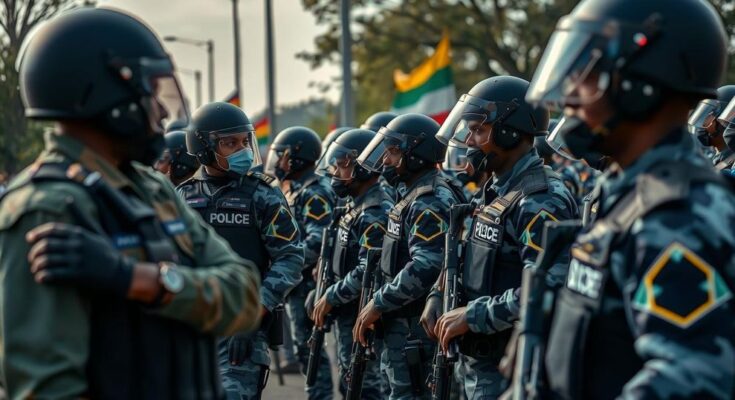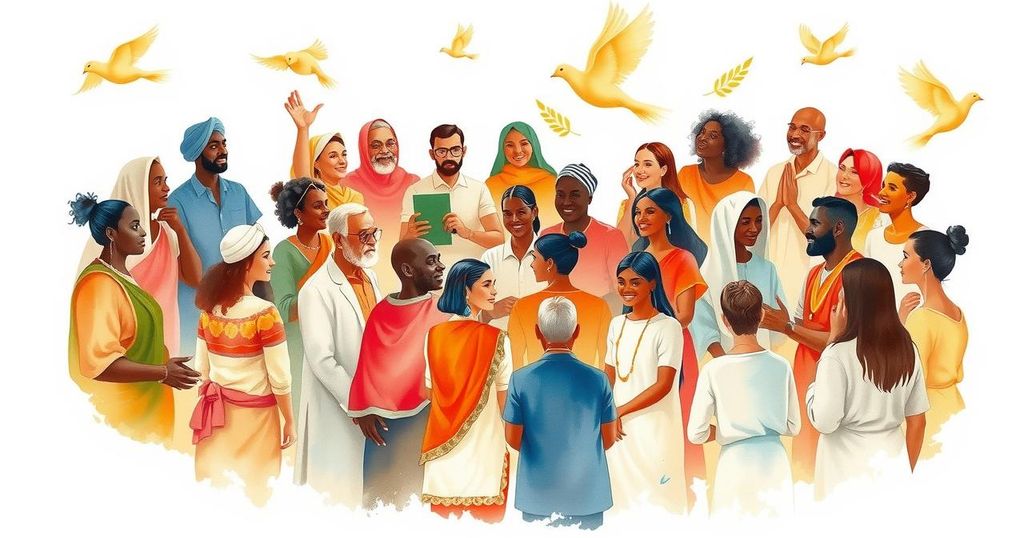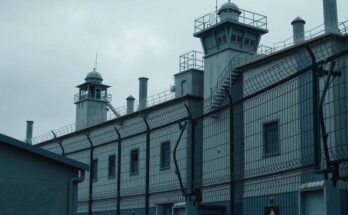Opposition activists in Botswana protested in Gaborone ahead of upcoming elections, alleging interference from Zimbabwe to benefit the ruling BDP. Their march was thwarted by police using force, leading to criticism regarding the conduct of law enforcement and concerns over election integrity as President Masisi seeks re-election.
Opposition activists in Botswana convened a protest in the capital city of Gaborone over the weekend, ahead of the general elections scheduled for this Wednesday. The demonstrators aimed to deliver a petition to the Zimbabwean embassy, expressing concerns that the Zimbabwean government is allegedly colluding with Botswana’s ruling political party to extend its prolonged tenure in power, now at 58 years. However, their march was impeded by police presence, who used force to disperse the crowd before they could reach their intended destination. The demonstration was organized by a coalition known as the Umbrella for Democratic Change (UDC). Despite being denied access to the embassy, UDC representative Mr. Phenyo Butale managed to read the petition, which urged the Zimbabwean government not to interfere in Botswana’s electoral process. Mr. Butale conveyed to VOA News that they had received credible intelligence suggesting that the Zimbabwean government intends to assist the Botswana Democratic Party (BDP) in manipulating the upcoming election results. The BDP, which has been in power since 1966, is led by President Mokgweetsi Masisi, who is seeking re-election against three challengers. “We decided to march to the Zimbabwe Embassy because we have been receiving credible information that there is an attempt by the Zimbabwean government to assist their friends here, the ruling party in Botswana, through clandestine means,” Mr. Butale stated. He asserted that the police actions were unwarranted, emphasizing that their right to peaceful assembly should not have been obstructed: “We were met by brute force,” he lamented, describing the heavily armed police response. According to Mr. Butale, the authorities claimed they required a permit for the march, a stance that he believed misinterpreted the law regarding freedom of expression. In contrast, the police insisted that obtaining a permit is mandatory for any demonstration. Political scholar Professor Zibani Maundeni from the University of Botswana articulated concerns regarding the police’s approach, suggesting that their interference in the protest could be perceived as politically motivated. “The police have to be a neutral body. If people organize a peaceful demonstration, there is no reason it should be stopped. In many countries in the region, the police have been a problem, acting in favor of the ruling party,” he remarked. Meanwhile, the BDP firmly rejected allegations of collaboration with Zimbabwe’s ruling ZANU-PF party to secure electoral victory. ZANU-PF spokesperson Mr. Farai Marapira also rebuffed these claims. “We do not interfere in the internal activities of any other country…This is just absurd and an insult to ZANU-PF and an insult to the people of Botswana themselves,” he stated. The electoral process has faced scrutiny aside from the protests, with some early voting stations reportedly running out of ballot papers. President Masisi, who succeeded Ian Khama after being appointed vice president, officially took office in 2018 and was elected in 2019 for a five-year term.
Botswana has a history of stable democracy, yet recent elections have been marred by allegations of irregularities and claims of external interference. The Botswana Democratic Party (BDP), which has been in power since the country’s independence in 1966, holds significant influence over the nation’s political landscape. In light of growing public dissent regarding election integrity and alleged external influences from neighboring countries like Zimbabwe, opposition coalitions, such as the Umbrella for Democratic Change (UDC), have mobilized to challenge these narratives, particularly ahead of crucial elections. As the country approaches another election cycle, discussions around the role of law enforcement and the neutrality of political institutions have gained prominence. The opposition has expressed heightened concern over perceived threats to democratic processes and the conduct of the ruling party.
The events leading up to the general elections in Botswana highlight the contentious political landscape in which opposition groups are mobilizing against longstanding governance by the BDP. The protests and the police’s forcible response underscore the challenges faced by opposition parties in exercising their rights. Moreover, allegations of external interference in the electoral process raise significant concerns about the integrity of the upcoming elections. As the nation prepares to cast its votes, the issues of political neutrality and freedom of assembly remain central to the discourse surrounding democracy in Botswana.
Original Source: www.voanews.com




